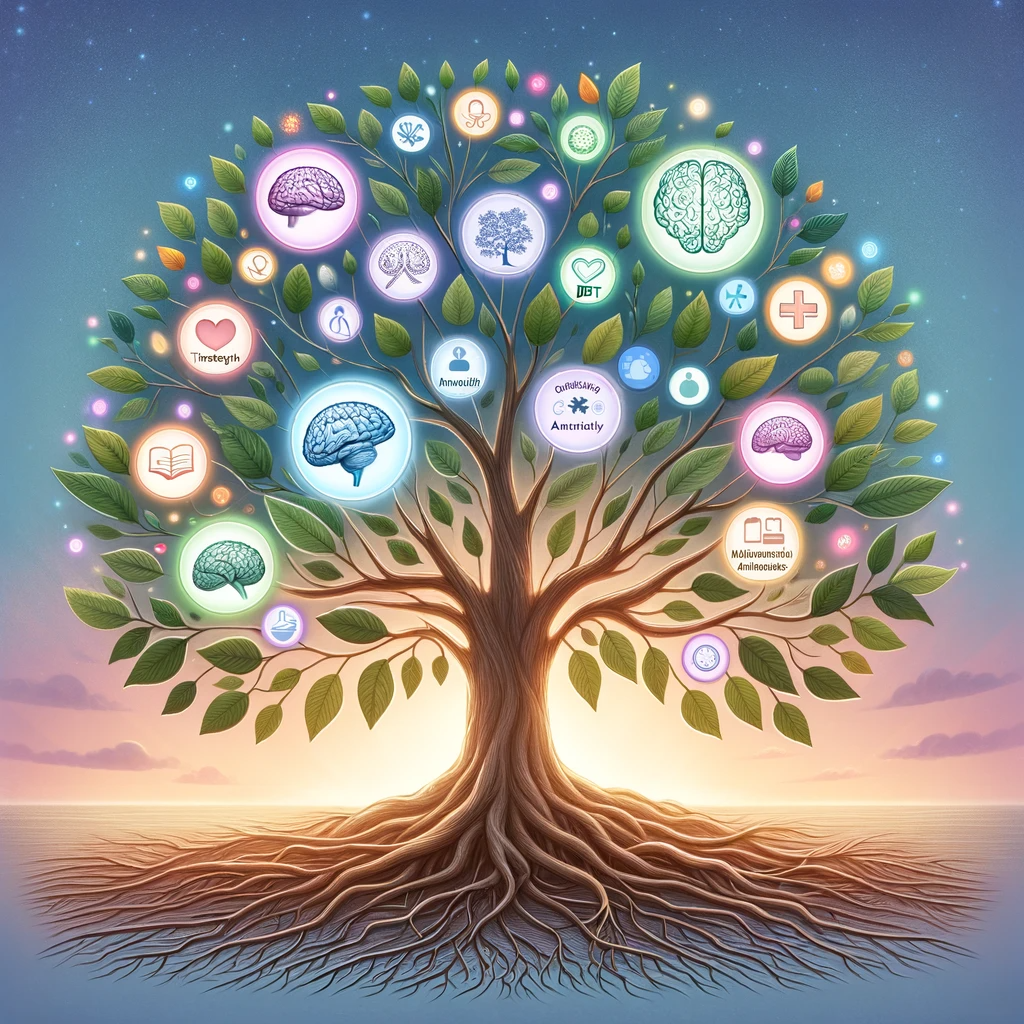Decoding Therapies for ADHD and Anxiety in the Neurodivergent Spectrum
It's widely accepted that managing Attention Deficit Hyperactivity Disorder (ADHD) alongside anxiety, particularly within the vibrant neurodivergent community, can present unique challenges. These neurodivergent conditions, prevalent in both the youth and adult populations, can significantly impact facets of daily life such as academic performance, job success, and interpersonal relationships. Despite medication often being a primary management method for ADHD, a plethora of therapeutic options also offers enormous potential. Let's delve into several therapeutic strategies that can support the management of ADHD and co-occurring anxiety symptoms.

Cognitive Behavioral Therapy (CBT)
At the forefront of interventions for ADHD and co-occurring anxiety is Cognitive Behavioral Therapy (CBT). This therapeutic approach targets hindering thought patterns, which can foster behaviors exacerbating ADHD and anxiety symptoms. Offering invaluable skills like problem-solving, organization, and strategic planning, CBT aids individuals in obtaining better control over their symptoms. This acquisition of skills promotes healthier habits and routines, contributing to improved focus and attention span, key components for individuals navigating ADHD and anxiety.
Psychoeducation
Psychoeducation plays an instrumental role in creating a well-rounded understanding of ADHD and anxiety for the individuals diagnosed and their families. A solid comprehension of these conditions boosts individual capacity to manage symptoms effectively. Further, psychoeducation fosters reduced stigma and misinformation around these conditions, promoting a supportive and understanding environment for those affected.
Behavioral Therapy
Especially impactful for children on the neurodivergent spectrum, behavioral therapy guides behavior transformation through the power of positive reinforcement. Foundational strategies such as setting clear rules and consequences, establishing consistent routines, and acknowledging and rewarding positive behavior form the base of this approach. The application-focused and structured nature of behavioral therapy can significantly aid in managing ADHD and anxiety symptoms, thereby contributing to enhanced academic results and improved interpersonal rapport.
ADHD Coaching
ADHD coaching, an adjunct to other therapeutic techniques, provides a platform to identify strengths and weaknesses and create action-oriented goals. This intervention, akin to life coaching, can trigger improvements in crucial areas like time management, organization, and focus. Technological aids like the GoblinX mobile app are also proving to be significant resources to augment ADHD coaching. This app is designed specifically to cater to ADHD individuals, promoting heightened focus, attention maintenance, and holistic mental wellness.
Family Therapy
Experiencing the diagnosis of a family member with ADHD and co-occurring anxiety can challenge families and shift familial dynamics. Family therapy, in this context, serves to bolster communication channels and foster mutual understanding within the family. This type of therapy equips families with strategies for providing effective support to a loved one navigating these neurodivergent conditions.
Conclusion
Successfully managing ADHD and anxiety symptoms requires a combination of medication, lifestyle adjustments, and most importantly, various therapeutic interventions. Collaborating with healthcare providers to devise an individualized treatment plan that matches the unique needs of the person is imperative. The integration of therapy, potentially paired with digital tools like GoblinX, can yield significant benefits for neurodivergent individuals managing ADHD and anxiety symptoms. The goal remains to empower individuals to enjoy a rewarding and fulfilling life.









